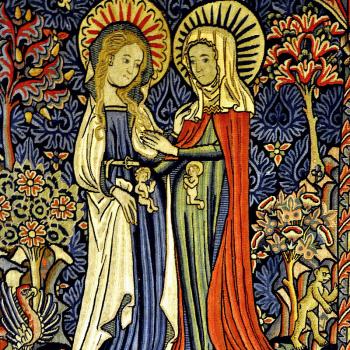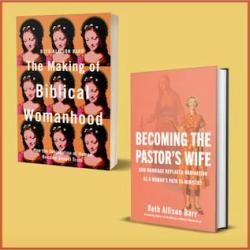Martin Luther did not want to preach in Wittenberg’s city church. The year was — most likely — 1513. Luther later commented that he “was chosen against my will to preach here.” He was afraid of what he considered a great responsibility. “I shall not live a quarter-year,” he feared.
Germany is currently just more than halfway through its “Luther Decade,” culminating with the five-hundredth anniversary of Luther’s posting of his ninety-five theses upon the Wittenberg church door on October 31, 1517. The commemorations will focus on the reformer’s ecclesiastical rebellion, his translation of the Bible, the work of reform, and the Lutheran legacy in music and art. Those celebrating Luther’s legacy should not ignore the reformer’s preaching.
Many Protestants still imagine that prior to the Reformation, European Christians never heard a sermon in their own language. That is false. Parishioners expected their priests to preach, either before or after the mass and in the vernacular, and star preachers attracted large audiences when they visited towns. [See the first chapter in John Frymire’s The Primacy of the Postil.] Certainly, Luther and many others complained incessantly about priests who neglected their duty of preaching, but Protestants did not invent the Christian sermon (one should probably credit Jesus and Paul for that). What Luther and his followers did was amplify and redefine the sermon’s importance.
Luther had preached before 1513, in the monastery in Erfurt at which he began his theological and philosophical education and at which he took his own vows. After his initial reluctance, moreover, he became a fixture in the Wittenberg pulpit, preaching hundreds of sermons over the following three decades. While there is no gainsaying the importance of Luther’s printed works, sermons, according to Frymire, remained the “key medium for spreading the evangelical message and movement.”
For Luther, it was important that ordinary people had access to the written Word of God. Hence, he feverishly translated the New Testament in the span of a single fall. Still, Luther believed it was of even greater importance that people hear God’s Word read aloud in their churches. “Satan does not care a hoot for the written Word of God,” Luther once commented, “but he flees at the speaking of the Word.” Preaching, moreover, was a central means through which parishioners encountered the living Word of God, the presence of Christ in the world. Just as Christ was mysteriously present in the sacramental bread and wine, so He was present in sermons. “[T]he preacher’s mouth and the words that I hear are not his,” Luther explained, “they are the words and message of the Holy Spirit.”
Luther’s own sermons are variously erudite, derogatory (toward his enemies), and tender (toward sinners struggling with doubt and temptation). His theology evolved considerably between the beginning of his preaching office in Wittenberg and his complete break with Rome, but from the start he hinted at some of his later core doctrines. In his earliest preserved sermon, preached in 1514, Luther emphasized that “no one is justified by faith except one who has first in humility confessed himself to be unrighteous.”
The sermon became the centerpiece of Protestant worship, and it remains so in many contexts. At the same time, few Protestants retain Luther’s theology of preaching. Luther would have little stomach for the entrepreneurial world of American Christianity, in which individuals without any ecclesiastical ties or theological training found new churches. Nor would Luther — despite his own translation of the Bible and his own devotional and academic study of the scriptures — agree that it is most important for people to study the scriptures on their own or in small-group Bible studies. They need to hear the Word proclaimed and expounded upon, and not just a sentence or two, as is increasingly common. There is, moreover, an enormous gulf between Luther’s world and ours, and perhaps today Luther would open a coffee-house ministry or, more likely, a tavern. Today, churches try harder to “reach people where they are.”
Luther sympathized with every generation’s complaints about sermons, that they are too long, too boring, and not relevant. He noted the problem of snoring during church, and he said that one of a minister’s most important qualification was “that he know when to stop.” Indeed, the belief that human beings could step up to the pulpit and serve as the mouthpieces for the eternal Word of God is, humanly speaking, rather foolish. Most people in the pews (or theater seats) recognize that basic foolishness as they praise or criticize a sermon on the basis of its entertainment, humor, or edification. In his final sermon, Luther preached that God “did not make his gospel known to the wise and understanding, but to infants and children.” He closed with a call to “shut our eyes altogether, and cling only to Christ’s Word and come to him.”
Protestants do not necessarily need better preachers or a dethronement of the sermon from its place at the center of their worship services. Instead, we need a Lutheran expectation that God’s Word will manifest itself through the “fleeting breath” of human beings and that through sacraments and sermon, the Word of God will make clear to us the promises of the gospel.












